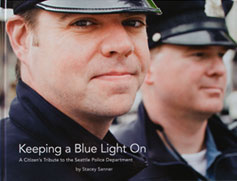 This book takes a rare inside look at the personal side of police work. Stacey Sanner was granted access to interview and photograph officers from the Seattle Police Department and as a result, she has captured personal stories about the experiences that have shaped them, the events and the people they remember, and the rewards and challenges of the job. The inspiration for the book came from Stacey’s desire to honor five Seattle-area officers who were tragically murdered in late 2009, five people who were targeted because they were police officers. The book is a tribute not only to the fallen, but also to all law enforcement for the daily commitment and sacrifices they make to protect the communities they serve.
This book takes a rare inside look at the personal side of police work. Stacey Sanner was granted access to interview and photograph officers from the Seattle Police Department and as a result, she has captured personal stories about the experiences that have shaped them, the events and the people they remember, and the rewards and challenges of the job. The inspiration for the book came from Stacey’s desire to honor five Seattle-area officers who were tragically murdered in late 2009, five people who were targeted because they were police officers. The book is a tribute not only to the fallen, but also to all law enforcement for the daily commitment and sacrifices they make to protect the communities they serve.
-
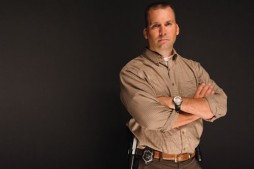
"I’ve lived the realities of the dangers of this job for 19 years. My wife knows the realities and the dangers. The fact is, you still go back out there and you do it. I know I have a job to do and I love doing the job." —Detective Jim Rodgers
-
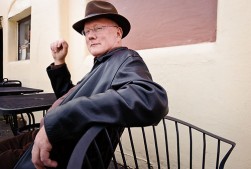
"I got shot at while I was a police cadet in 1968...I had about a month on the department at the time, and the lieutenant told me it could be a harbinger of things to come, or it could never happen again. 'This is your moment to decide if you want to make police work your career or not.'" —Captain Neil Low
-
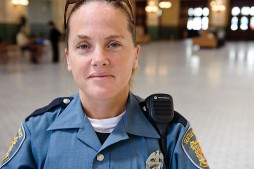
"I like to catch the bad guys, everyone does. But I like interacting with people. I work down in Pioneer Square and the International District. The homeless population is 90% of the people I deal with. I really like working with them. —Officer Leigh Fiedler
-
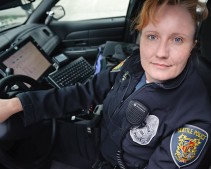
"I have 8- and 10-year-old boys. I remember the first time my older son ever really noticed about my work. I got home and he goes, 'Mom, did you go to work today?' I said yes. He said, 'Did you chase the bad guys?' I said yes. I was wondering where this was going." —Officer Becky Miller
-
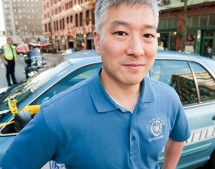
"I always knew I could do this. My primary concern when I considered going into the Homicide Unit was that the cases I couldn’t solve would be the cases that would bother me the most." —Detective Paul Takemoto
-
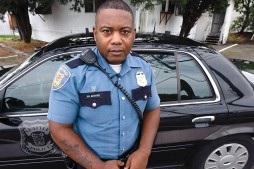
"We run toward shots fired when the normal person would run away. We do the total opposite of what a normal person would do. I think that this job is a calling for most of us. Not everyone can do this job. We are in the business of helping people." —Officer Kevin McDaniel
-
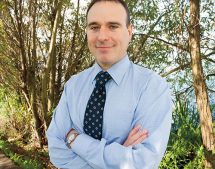
"The danger is so undefined. You know that on any given day, someone, and you don’t know who they are, man or a woman, young or old, what they’ll be wearing, what they’ll look like – might try to kill you." —Sgt. Sean Whitcomb
-
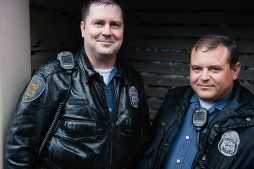
"I hate to go to cop funerals. We’ll put black tape over our badges. A few years ago I started saving my black tape and putting it in my locker. I’ve got a row now of black tape. One of the guys was walking by my locker recently and saw it and asked, 'What's all that?' And I said, 'Officers.' It just hit him then." —Officer Eugene Schubeck and Officer Bryan Bright
-
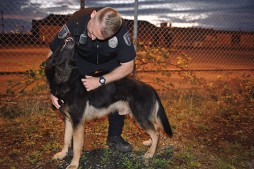
"As long as we have a clear uncontaminated starting point, the dog is going to figure out who we’re looking for. That’s part of the training. He has to be able to discriminate between the scents of other people who have walked across it and the scent that we’re looking for." —Officer Sean Moore
-
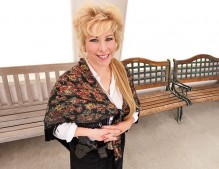
"One of the roughest times was a day that I had back-to-back domestic violence (DV) calls. I responded to the first call and found children curled up on the floor, huddled in fetal positions because they had been attacked by their father. Their mother had been savagely beaten." —Sgt. Cindy Granard
-
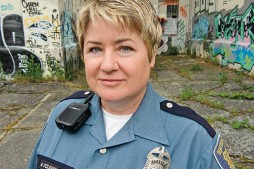
“.....after you’ve worked in the city for a number of years, you cannot pass by a block without a memory of something that happened there, maybe even something that happened in every house on that block.” —Officer Merry O’Cleary
-
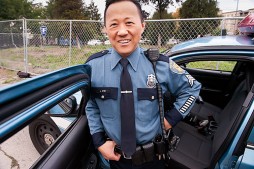
"Within the last 23 years, the only thing I’ve ever personally kept in my file that means anything are the letters of commendation I get from citizens. Those mean more to me than any recognition I might receive from within the department." —Sgt. Jay Shin
-
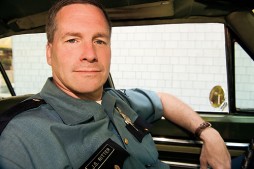
"I experienced some pretty traumatic incidents that changed the course of my life. It goes along with the territory. The most traumatic was the Goldmark murders in 1985. That call was pretty damaging. I had seen a lot of violence and murders...but when you see a family of four butchered on Christmas Eve... it takes its toll." —Officer Jim Ritter
-
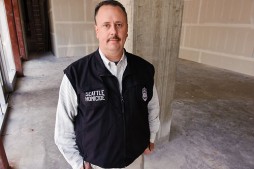
"There was a case that was extraordinarily brutal. This victim was a lifelong mentally ill kid that was on the street wandering around, definitely in crisis. Two suspects beat him to death over a several-hour period. Slowly." —Detective Alan Cruise
-
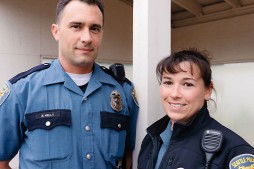
"Initially, I didn’t know about Tim [Brenton]. I radioed in the car that shots had been fired. I got out of the car. I was looking through the V watching him [the shooter] drive off. I returned fire...I looked into the vehicle. I don’t know if my memory won’t let me keep the visual, but I knew he was dead at that point." —Officer Britt Sweeney (R) pictured with Officer Ben Kelly
-
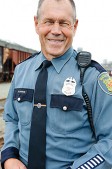
"I had this little binder and I’d see someone walking down the street and now with the computer I didn’t have to run it over radio, so I’d just run their name and find, oh, they have a warrant. I’d get another officer and go scoop them up. This generated one of my nicknames, which was Bogeyman." —Acting Sgt. Ron Martin
-
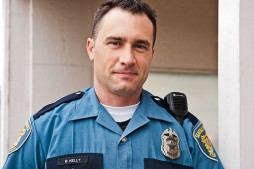
"I had just passed Maurice Clemmons....I didn’t know who he was...he’s walking directly toward me. I get out to address him and by this point he’s pretty close. I get out of my car, turn and face him and that’s when he looks up for the first time. I recognize who it is. Training just kicked in from the second I recognized him." —Officer Benjamin Kelly
-
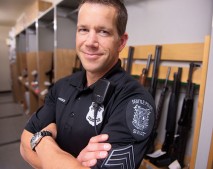
"Some of them struck a cord, this one gal in particular....Her parents were both crack dealers and addicts....She was 20 years old...It was her only way to make money...She's crying and I said, 'If you really want help, I will help you. I'm going to give you my cell number and you can call me.' Sure enough, three days later she called me..." —Sgt. Drew Hancock